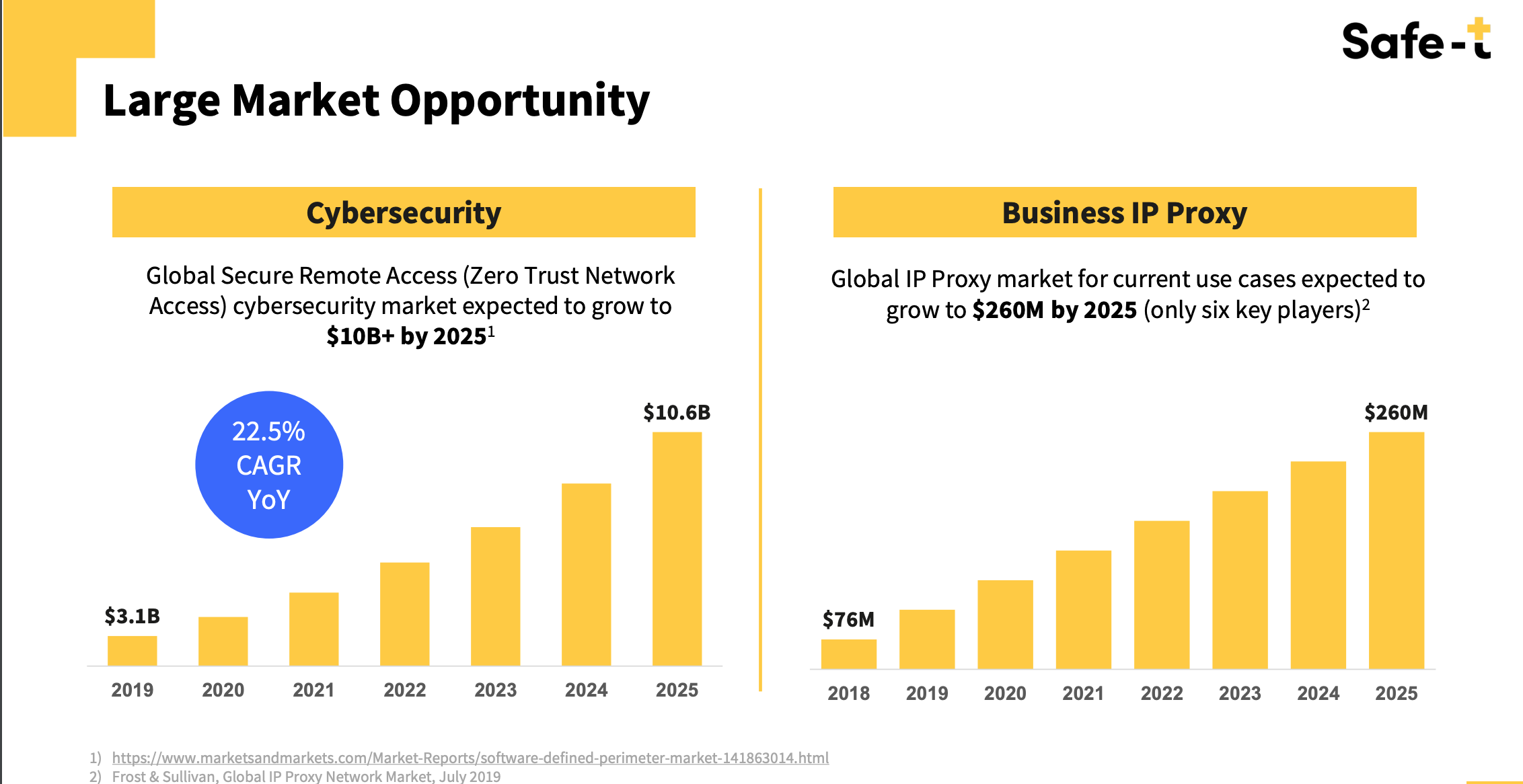
Over the past year, we saw how enterprises across the globe adapted to the pandemic situation and remote working conditions. Numerous industries, even those with a minimal digital presence, were forced to ramp up their efforts on the technology side to facilitate work from home effectively. This tectonic shift in work culture has, in turn, unlocked massive growth potential for companies like Safe-T Group (NASDAQ: SFET).
The Israeli firm is a provider of zero trust network access solutions, the next generation of remote working security systems. The company provides cybersecurity and business proxy IP solutions to a global enterprise customer base, which includes popular names such as Philips, Checkpoint, and eBay. Interestingly, the company offers a good balance of growth and stability with a high gross margin of 49% (TTM) and zero debt.
In an interview with AlphaStreet, Safe-T CEO Shachar Daniel and VP of Corporate Development Eitan Bremler elaborated on the market potential and why the management feels the company is currently undervalued.

AlphaStreet: How has the market been affected by the pandemic and the work-from-home culture?
Eitan: From a consumer perspective, people got stuck at home, leading to much more browsing. This caused a spike in the demand for personal security solutions.
On the enterprise side, the shift was similar but different. People were sent to work from home and suddenly the number of people who were connecting to the enterprise from outside grew exponentially, increasing the attack surface. So organizations ran really fast to support all these remote users, including people working from their home PCs, those working from their managed laptops, as well as business partners.
That created a very big requirement for remote access technologies based on zero trust because they need to address different users differently. And that affected the demand and recognition for the whole zero trust network access space which we play in.
Of course, in some places budgets dropped because investment dropped, but the need and hype for remote access solutions grew immensely.
Shapeways CEO: Software platform helps us achieve higher gross margins vs. industry
AlphaStreet: Do you see your solutions replacing VPNs sometime in the future?
Eitan: What we are seeing is a partial replacement. Most organizations want to do a hybrid model and take some of their users off the VPN and put them on Safe-T.
The idea behind Safe-T is that if a user at the office has access to four applications and does multifactor authentication in a certain way when he goes home and works from his company-sanctioned laptop or mobile phone, he will get access to exactly the same applications with the same authentication scheme.
AlphaStreet: Who are your competitors and what is your USP?
Eitan: On the enterprise side, the competition we see is from vendors like Zscaler, Akamai, etc. These vendors offer zero trust and took access as a cloud service. Where we differentiate is that our solutions are not only offered as a cloud service, but we also offer it on-prem. There are still a lot of legacy organizations out there who want to own the solution but because of regulations, have to deploy it on-prem.
We also pride ourselves on our seamless integration, meaning we don’t change the behavior of the users or the application. We don’t require a client or an agent, which is a very big USP for us.

Glimpse Group CEO: Big Tech complements our efforts in VR/AR
AlphaStreet: You are a debt-free company. Do you expect to keep it that way?
Shachar: On one hand, I don’t see any reason why I need to have debt sitting on my balance sheet. On the other hand, assume we plan to acquire the assets of a great cyber company that can triple our sales and offers great synergy with our products. In that scenario, I may prefer to raise money through equity and some kind of convertible debt.
AlphaStreet: What’s the focus right now – growth or profitability?
Shachar: I’m sure investors would want us growing 100% and lose money than growing 10% and being profitable. I have a target to invest in my R&D to develop great products, to scale up our sales and marketing efforts, and to be a big company in the future. So the plan is now to be very efficient and improve the indicators.
Right now we are a young company and undervalued in my perspective. The value for investors will be in seeing the company making huge progress.
_______
